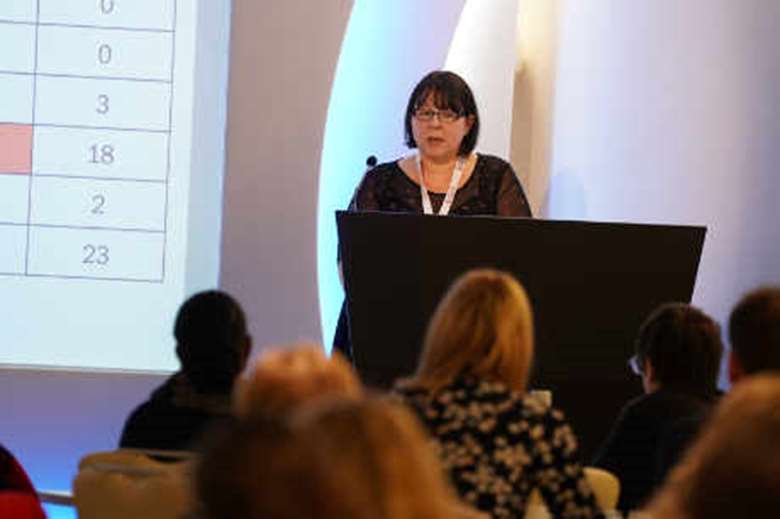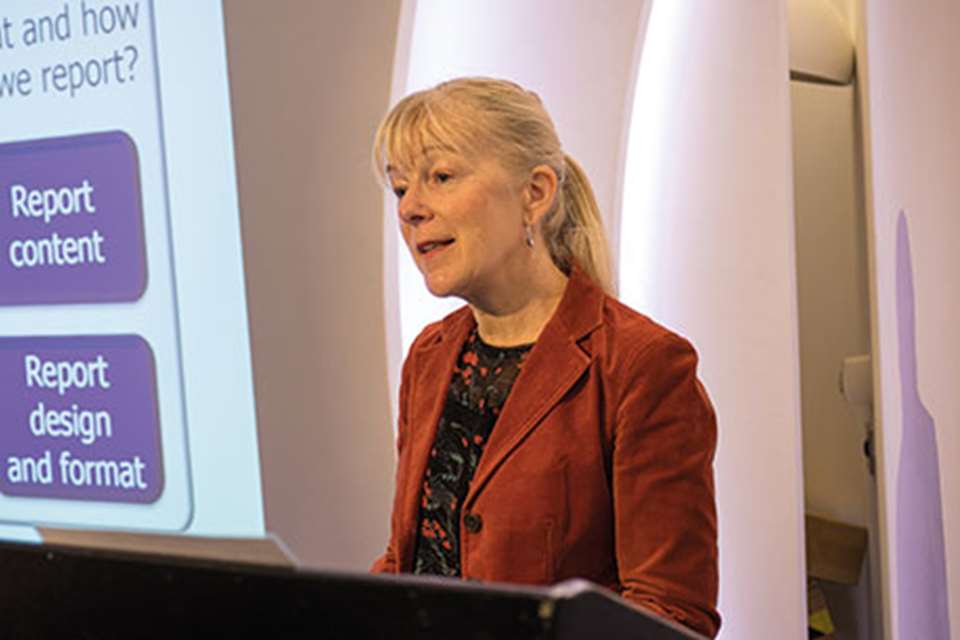More than 80 per cent of providers good or outstanding under EIF
Meredith Jones Russell
Wednesday, November 13, 2019
Speaking today at the Nursery World Business Summit, Pennie Akehurst, managing director of Early Years Fundamentals, said early analysis of Ofsted inspections under the new framework paints an 'encouraging picture'.

However, Ms Akehurst warned that as the Education Inspection Framework (EIF) 'beds in', the sector may see more Requires Improvement (RI) outcomes.
During Nursery World's Business Summit in London today, the former Ofsted inspector, revealed early results from her analysis of the first 254 PVI inspection reports published since the new EIF was introduced in September.
The analysis shows that a total of 82 per cent of providers achieved a good or outstanding result.
However, 45 settings received a Requires Improvement (RI) or Inadequate grade.
According to Ms Akehurst, this mirrors results from previous inspection cycles in 2018 and 2019.
However, as Ms Akehurst traditionally analyse much larger sample sizes of between 600 and 800 reports, she said this was only an emerging picture and no definitive conclusions could be drawn, but said nonetheless it was ‘pleasing’.
She explained, ‘This is an encouraging picture, as changes to the inspection framework have caused an awful lot of anxiety across the sector. However, only time will tell if this spread continues to mirror that of previous terms.’
Ms Akehurst went on to warn that the sector could see more RI outcomes however.
She said, ‘The pessimist in me would say I think we ought not to count our chickens just yet. That is for a couple of reasons.
‘First, inspectors will still be finding their feet with the new inspection framework, which may mean more cautious judgements in the short term, which could change in the weeks and months that follow.
‘Secondly, there’s a much keener focus on the quality of teaching and learning in the new inspection framework. Inspectors are taking a really good look at what we do, how we do it, and more time is being spent observing practice.
‘Therefore, as time ticks on, we could possibly see an increase in the number of settings that receive an RI judgement.
‘The journey to outstanding could also be much more of a challenge.’
Ms Akehurst also compared the grades acquired under the new EIF to the same settings’ previous grades, which she said provided ‘invaluable insight into how the sector copes when there are significant changes.’
The data showed that while 65 of 83 settings (78 per cent) which were previously rated good managed to retain their inspection outcome under the EIF, only 18 (7 per cent) of those with Outstanding ratings managed to do the same.
More happily, however, the majority of those with an RI or Inadequate rating managed to improve their grade under the EIF.
Ms Akehurst commented, ‘This is significant to me because when a setting receives an RI outcome, local authorities are strongly encouraged to remove two-year-olds’ funding unless there is an under-supply in that particular area. In cases where settings receive an Inadequate inspection outcome, local authorities have a statutory duty to withdraw all funding.
‘So it’s pleasing to see that so many settings have found a way of managing these financial penalties and are able to ride out the storm until the next inspection comes.’
Revised Development Matters
Julian Grenier, headteacher at Sheringham Nursery School and Children’s Centre in Newham, also addressed the Business Summit on the topic of what is important in the early years curriculum.
Mr Grenier is leading on the update of the revised Development Matters with the Department for Education (DfE), and while he could not discuss the details of the document because of purdah, he covered a number of relevant issues, including:
- The importance of language, and listening to and having conversations with children
- Encouraging children to do and remember more – the need for challenge
- Designing a curriculum with strong foundations, that is carefully aligned, with the bottom supporting the top
- The need for productive assessment that does not become a chore – ensuring assessment is used to help plan resources, routines and teaching rather than getting in the way of good early years pedagogy
- Bringing everything together by continuing to support ongoing professional development, not investing in fads and allowing practitioners time to understand, try out and receive feedback on new ideas and practice.
- Follow #nurseryworldbusinesssummit for the latest information and images.





